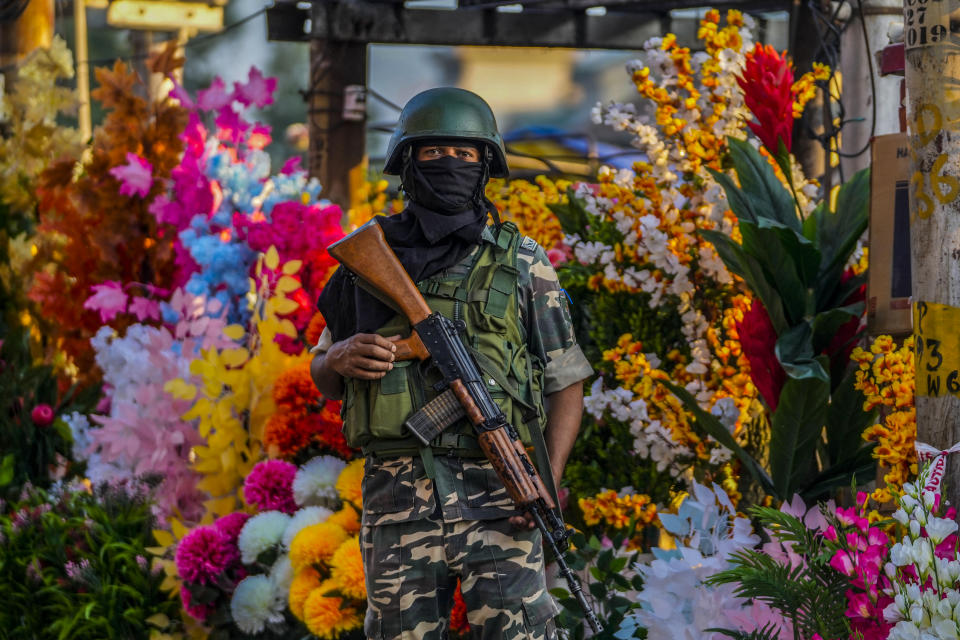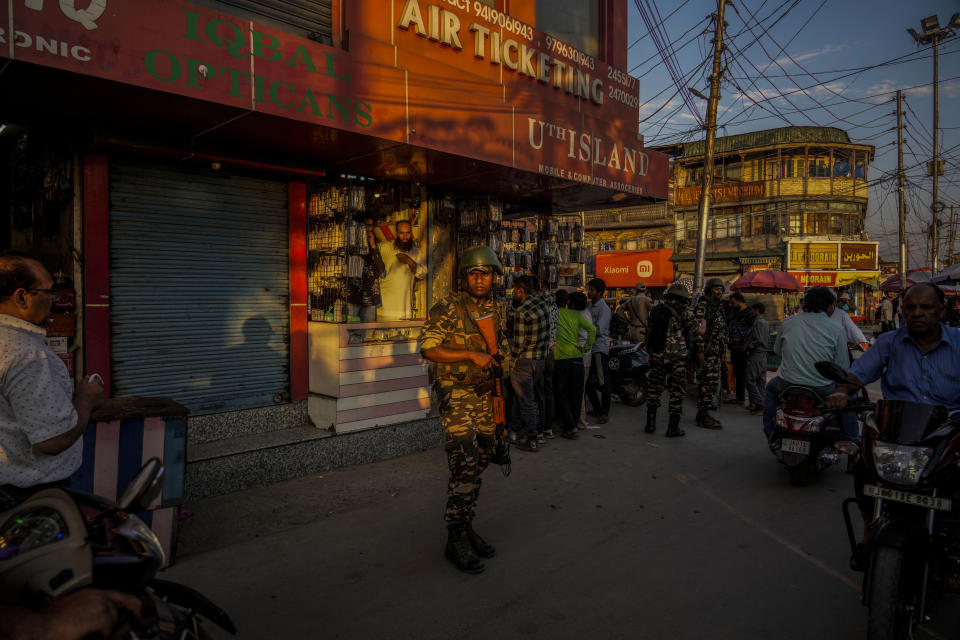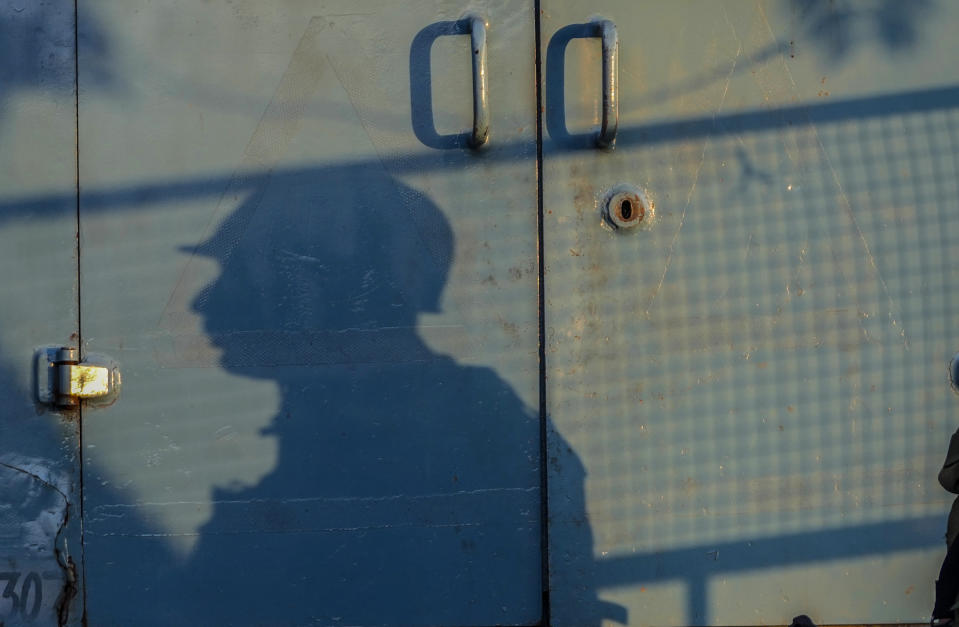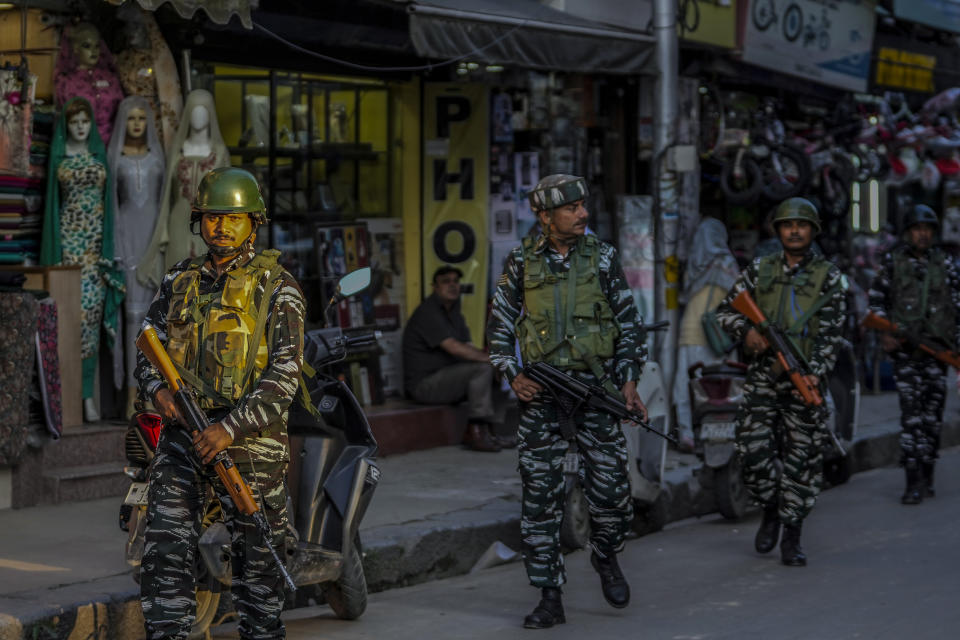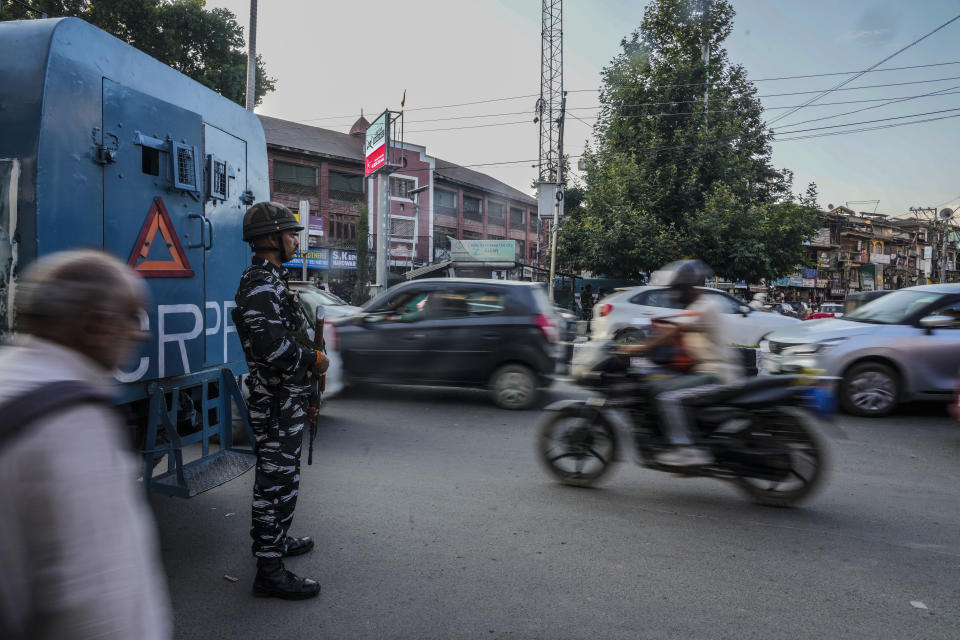India's top court hearing petitions challenging government's removal of Kashmir's special status
- Oops!Something went wrong.Please try again later.
NEW DELHI (AP) — India’s top court Wednesday began hearing a clutch of petitions challenging the constitutionality of the legislation passed by Prime Minister Narendra Modi’s government in 2019 that stripped disputed Jammu and Kashmir’s statehood, scrapped its separate constitution and removed inherited protections on land and jobs.
The five-judge constitutional bench that includes the Supreme Court’s chief justice is simultaneously hearing a series of petitions challenging the special status granted to the region after its accession with newly independent India in 1947. Such petitions were filed before the 2019 changes.
The unprecedented move divided the region into two federal territories — Ladakh and Jammu-Kashmir, both ruled directly by the central government without a legislature of their own. The move’s immediate implications were that the Muslim-majority region is now run by bureaucrats with no democratic credentials and lost its flag, criminal code and constitution.
“The case is before the country’s top-most constitutional bench. We are optimistic as we know our case is very strong,” said Hasnain Masoodi, a Kashmir-based Indian lawmaker who was one of the first petitioners challenging the Modi government’s decision. He also served as a judge at Kashmir's high court.
“This constitutional framework provided a mechanism to be part of the Indian union. The abrogation was a betrayal and an assault on our identity,” he said.
Masoodi, who is part of Kashmir region’s largest political party, the National Conference, said the 2019 decision “violated every norm and mechanism” under India’s constitution and its “gross violation in letter and spirit.”
Soon after, Indian officials began integrating Kashmir into the rest of India with administrative changes enacted without public input. A domicile law rolled out in 2020 made it possible for any Indian national who has lived in the region for at least 15 years or has studied for seven years to become a permanent resident of the region. That same year, the government also eased rules for Indian soldiers to acquire land in Kashmir and build “strategic” settlements.
Indian authorities have called the new residency rights an overdue measure to foster greater economic development, but critics say it could alter the population's makeup.
Many Kashmiris worry that an influx of outsiders could alter the results of a plebiscite if it were to ever take place, even though it was promised under the 1948 United Nations resolutions that gave Kashmir the choice of joining either Pakistan or India.
The stunning mountain region has known little but conflict since 1947, when British rule of the Indian subcontinent divided the territory between the newly created India and Pakistan. Kashmiri separatists launched a full-blown armed revolt in 1989, seeking unification with Pakistan or complete independence.
Most Muslim Kashmiris support the rebel goal of uniting the territory, either under Pakistani rule or as an independent country. New Delhi insists the Kashmir militancy in Pakistan-sponsored terrorism, a charge Islamabad denies. Tens of thousands of civilians, rebels and government forces have been killed in the conflict.
Many Muslim ethnic Kashmiris view the 2019 changes as an annexation, while members of minority Hindu and Buddhist communities initially welcomed the move but later expressed fear of losing land and jobs in the pristine Himalayan region.
While deeply unpopular in Kashmir, the move resonated in much of India, where the Modi government was cheered by supporters for fulfilling a long-held Hindu nationalist pledge to scrap the restive region’s special privileges.
In New Delhi’s effort to shape what it calls “Naya Kashmir,” or a “new Kashmir,” the territory’s people have, however, been largely silenced, with their civil liberties curbed, as India has shown no tolerance for any form of dissent.
Kashmir’s press has also faced major difficulties. Many journalists in the region have since been intimated, harassed, summoned to police stations and sometimes arrested. The administration also implemented a new media policy that seeks to control reporting.
___
Hussain reported from Leh, India.
